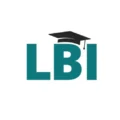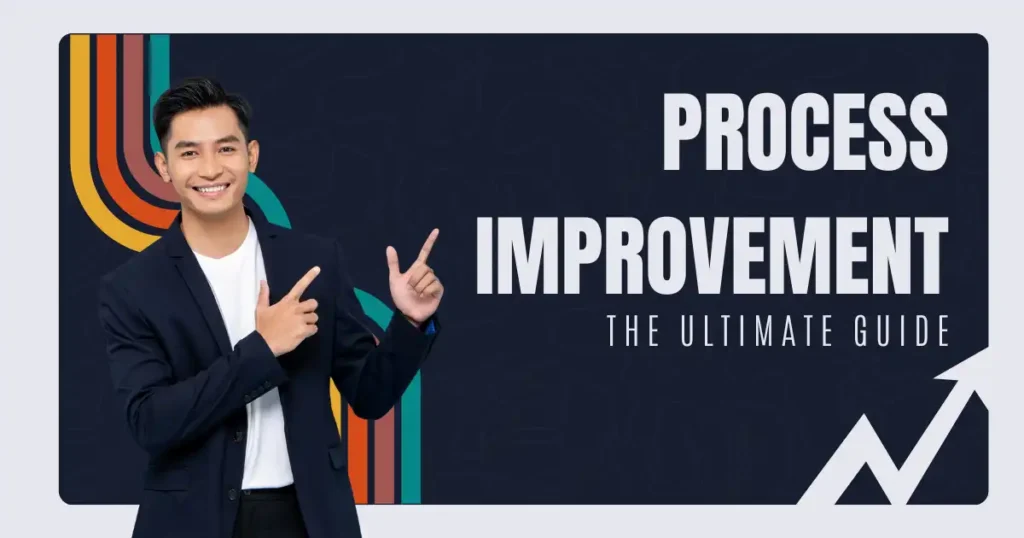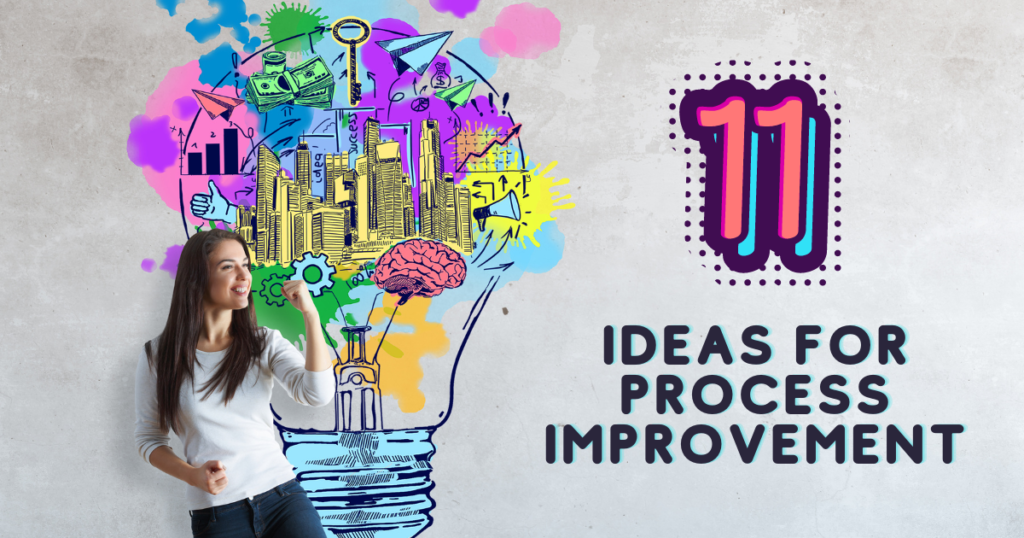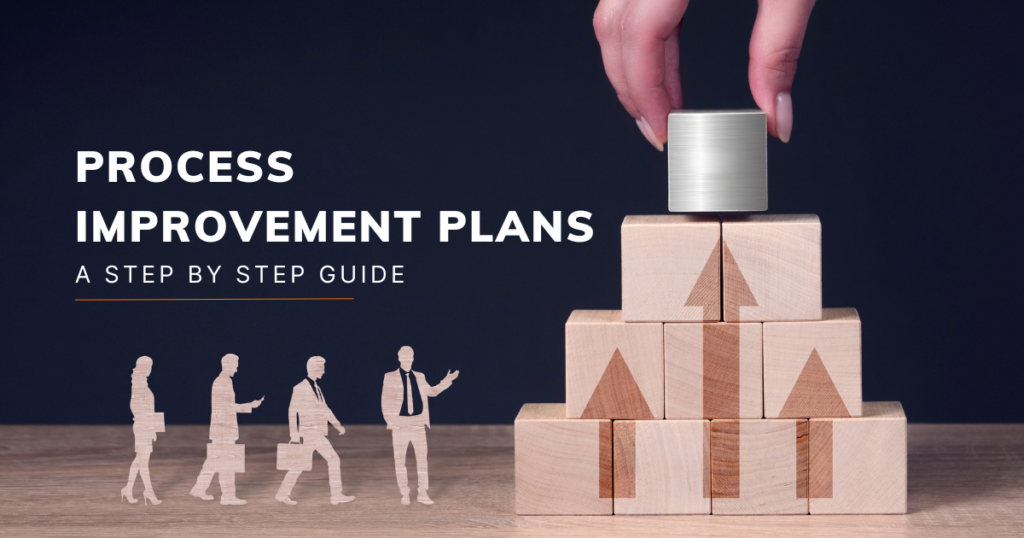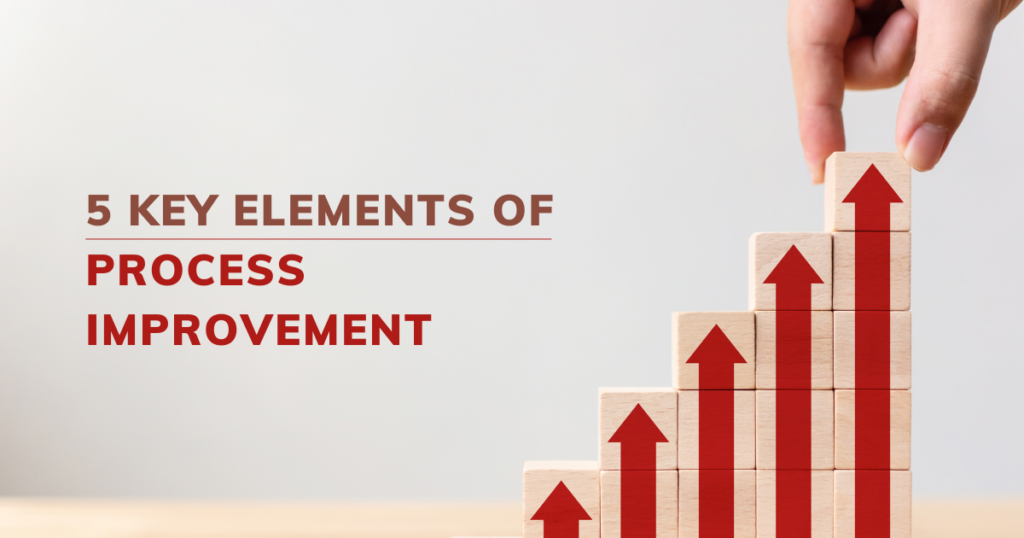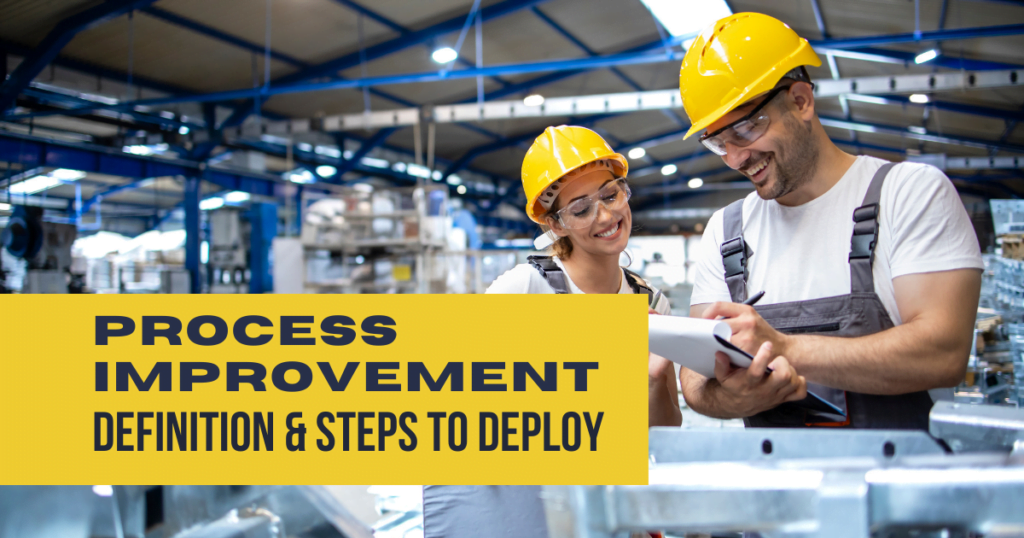Table of Contents
Introduction
In today’s competitive business environment, process improvement is no longer a luxury—it’s a necessity. Organizations across industries are facing increasing pressure to streamline operations, reduce costs, and enhance efficiency. This is where Process Improvement professionals come into play. These specialists are essential in driving change, optimizing workflows, and ensuring that organizations remain agile and competitive in a constantly changing market.
As a result, the demand for skilled process improvement professionals has surged. Companies are actively seeking individuals who can analyze and improve processes across all levels, from departments to leadership. Whether it’s removing waste, integrating new technology, or adapting to organizational changes, process improvement experts are the key to success.
However, hiring the right person for this critical role requires more than just reviewing resumes or qualifications. The process improvement specialist must have a deep understanding of various methodologies, such as Lean Six Sigma, Agile, and Kaizen, and the ability to tailor solutions to the specific needs of an organization.
In this blog, we will explore the essential questions to ask when interviewing for a process improvement role. These questions will help you evaluate not only the candidate’s technical expertise but also their ability to drive cultural change, communicate effectively, and deliver lasting impact. Whether you’re an HR professional, hiring manager, or department leader, these insights will ensure you make an informed and confident hiring decision.
Understanding the Role of Process Improvement Specialists
The role of a Process Improvement specialist is multifaceted and critical to an organization’s success. At its core, this role involves identifying inefficiencies in business processes and finding ways to improve them. However, the responsibilities extend beyond just identifying problems—they involve driving sustainable change that enhances productivity, reduces costs, and ensures processes are aligned with business goals.
Process Improvement specialists are not limited to any single department or function. They collaborate with teams across the organization, from finance and HR to operations and IT, to analyze workflows, identify bottlenecks, and propose actionable solutions. This cross-functional exposure requires a unique blend of analytical skills, project management expertise, and the ability to communicate complex ideas to a wide range of stakeholders.
One key aspect of this role is data-driven decision-making. Effective process improvement often relies on the use of data to pinpoint inefficiencies, measure improvements, and ensure that changes are having the desired impact. Specialists must be comfortable using tools such as process mapping, value stream analysis, and performance metrics to guide their recommendations.
Moreover, the successful Process Improvement professional is one who can manage projects from start to finish. This includes defining the scope, coordinating with stakeholders, implementing solutions, and tracking the results. Project management skills are essential, as many of these initiatives involve multiple phases, tight timelines, and competing priorities.
Finally, Process Improvement specialists are agents of cultural change. In addition to improving workflows, they must foster a mindset of continuous improvement within the organization. This means ensuring that employees at all levels understand the value of process improvement and are empowered to contribute to ongoing efforts to enhance efficiency.
In short, Process Improvement specialists play a pivotal role in shaping an organization’s efficiency, productivity, and overall success. Their ability to drive change, manage projects, and engage with people across the organization makes them invaluable assets in today’s business world.
20 Key Questions to Ask During a Process Improvement Interview

When interviewing candidates for a Process Improvement specialist role, it’s essential to ask questions that help you evaluate their ability to drive change, manage complex projects, and communicate effectively with stakeholders at all levels. Below is a list of 20 key questions that will give you insights into a candidate’s qualifications, problem-solving ability, and cultural fit.
Project Experience and Problem-Solving
- Walk me through your most successful Process Improvement project.
- This question helps you assess the candidate’s ability to handle large-scale initiatives and achieve measurable results.
- What obstacles did you face during the delivery of this project, and how did you overcome them?
- Look for problem-solving skills and resilience. A good candidate will explain how they handled challenges, especially resistance to change.
- Tell me about a time when you identified a process bottleneck. How did you address it?
- This reveals how they identify inefficiencies and the methods they use to address them.
- How do you prioritize improvement projects when resources are limited?
- Their answer should reflect strategic thinking and prioritization skills.
- How do you assess the effectiveness of a process improvement after it’s been implemented?
- This gives insight into their ability to measure and ensure sustainable results.
Methodologies and Tools
- Which process improvement methodologies are you most familiar with, and how have you applied them?
- Can you explain a time when you used process mapping in your projects?
- Process mapping is a crucial tool in process improvement. The candidate should be able to explain its use in identifying inefficiencies.
- What role does data play in your process improvement efforts?
- A solid candidate should understand the importance of data in guiding decisions and measuring success.
- What are the key factors you consider when designing a new process?
- Look for answers that show a holistic understanding of process design, including cost, efficiency, and stakeholder buy-in.
- How do you engage teams to adopt new processes?
- Their answer will show whether they have experience in change management and how they work with cross-functional teams.
Stakeholder Engagement and Communication
- How do you sell the need for process improvement to senior leadership?
- Process improvement specialists must convince leaders that change is necessary, so strong communication skills are essential.
- Describe a time when you had to convince a skeptical team or individual to embrace process improvements.
- Look for examples of persuasion and handling resistance to change.
- How do you tailor your communication to different stakeholders, such as frontline workers or C-suite executives?
- Process improvement specialists need to engage effectively with people at various levels in the organization.
- How do you handle situations when a stakeholder doesn’t agree with your proposed changes?
- This question helps evaluate their ability to manage conflict and keep projects moving forward.
Personal Traits and Career Development
- What motivates you to work in process improvement?
- Passion and enthusiasm for the role can be a significant factor in a candidate’s success.
- How do you stay updated with the latest trends and tools in process improvement?
- The ideal candidate should demonstrate a commitment to continuous learning and improvement.
- What do you think is the biggest challenge facing process improvement specialists today?
- This shows whether they are aware of the current business landscape and its challenges.
- How do you manage multiple process improvement projects at the same time?
- The candidate’s ability to handle competing priorities will be key to their success in the role.
- How would you approach a situation where you’ve completed a process improvement, but results are not as expected?
- A good candidate should demonstrate the ability to pivot and make adjustments after analyzing the outcomes.
- Where do you see your career in process improvement in the next 5 years?
- Their response should show ambition and a desire to continue developing their expertise in the field.
These questions are designed to give you a deeper understanding of the candidate’s experience, mindset, and approach to process improvement. By asking these targeted questions, you’ll be able to assess their technical abilities as well as their fit within your company’s culture and values.
Things to Look Out for in Candidates’ Answers
When interviewing candidates for a Process Improvement role, it’s crucial to assess not just their qualifications and experience but how they respond to questions. The answers provided can give deep insights into their problem-solving capabilities, adaptability, and passion for process improvement. Here’s how to evaluate key aspects of their responses:
1. Impact and Results
A strong process improvement professional should be able to point to specific, measurable outcomes from their past projects. Look for responses that demonstrate real-world impact. For instance, did the candidate lead a project that resulted in cost savings, efficiency gains, or improvements in customer satisfaction?
- Look for quantifiable results: Candidates who can provide data-driven examples of their contributions (e.g., “I helped reduce operational costs by 15%” or “We improved the process cycle time by 30%”) show they are results-oriented.
Key Question to Ask:
- “Can you share a specific example of how your process improvement efforts resulted in measurable improvements?”
2. Problem-Solving and Analytical Skills
Process improvement requires an ability to identify problems, analyze root causes, and implement solutions. Strong candidates should demonstrate a structured approach to solving issues, such as root cause analysis, data analysis, and process mapping. They should be able to walk you through how they identified inefficiencies, evaluated different solutions, and ultimately resolved issues.
- Look for structured approaches: Candidates who use systematic frameworks to tackle challenges (e.g., DMAIC, Lean Six Sigma) demonstrate technical competence and a thoughtful approach.
Key Question to Ask:
- “Can you walk me through a time when you identified a complex process issue and how you solved it?”
3. Adaptability and Flexibility
Process improvement projects don’t always go as planned, and the ability to adapt to changing circumstances is essential. A great candidate should share examples of when they had to adjust their strategy or pivot due to unforeseen obstacles, such as changes in resources, leadership, or company priorities.
- Look for resilience: Candidates who talk about overcoming setbacks or adjusting strategies mid-project show that they can thrive under pressure and handle uncertainty.
Key Question to Ask:
- “Tell me about a time when you had to adjust your process improvement approach due to unexpected challenges. How did you handle it?”
4. Passion and Enthusiasm for Continuous Improvement
Passion is one of the most important qualities in a process improvement professional. The work can be challenging and may require long-term commitment to make lasting changes. The right candidate should be genuinely excited about the potential to improve processes and should express a desire for continuous learning and growth in the field.
- Look for genuine excitement: Candidates who speak about their work with energy and enthusiasm are likely to stay motivated through the ups and downs of process improvement projects. They will also be more likely to drive a culture of improvement within your organization.
Key Question to Ask:
- “What excites you the most about process improvement and how do you keep up with the latest trends and techniques?”
5. Cultural Fit and Collaboration
Finally, process improvement is not a solo endeavor. Candidates must demonstrate the ability to work effectively with teams across various functions and levels. Look for candidates who emphasize collaboration, cross-functional teamwork, and empathy for people affected by changes in processes.
- Look for teamwork skills: Candidates who have successfully led teams or worked alongside others to implement changes demonstrate the interpersonal skills needed to foster collaboration and buy-in.
Key Question to Ask:
- “How have you worked with stakeholders from different departments to ensure a successful process improvement implementation?”
By focusing on these aspects in a candidate’s answers, you can better assess their capability to drive impactful change, solve complex problems, adapt to challenges, and bring a passion for continuous improvement into your organization.
Example Answers to Common Interview Questions
In a process improvement interview, candidates should be able to demonstrate their experience and skills through concrete examples. Below are responses to three common interview questions, along with a breakdown of the key skills each answer highlights.
1. “Can you describe a successful process improvement project you led in your previous role?”
Example Answer: “In my previous role as a Process Improvement Specialist at XYZ Corp, I led a project to streamline our customer service process. The aim was to reduce response times and improve customer satisfaction. We identified several inefficiencies, including slow data entry and a lack of cross-departmental communication. By implementing a new CRM system and automating certain tasks, we reduced our average response time by 25% and improved customer satisfaction scores by 15% within three months.”
Breakdown:
- Skills Demonstrated:
- Leadership: The candidate led the project, managing resources and guiding the team.
- Data-Driven Decision Making: The response includes measurable outcomes, such as a 25% reduction in response time and a 15% improvement in satisfaction scores.
- Problem-Solving: The candidate identified inefficiencies and addressed them by implementing a CRM system.
- Collaboration: The mention of cross-departmental communication shows the candidate worked with various teams to implement the solution.
2. “How do you identify opportunities for process improvement?”
Example Answer: “I typically begin by gathering quantitative data through key performance indicators (KPIs) and analyzing operational workflows. For example, in my previous role, I used data from our production line to identify bottlenecks. I also conducted interviews with frontline staff to understand pain points they were experiencing. From there, I would map out the processes and look for inefficiencies or areas where we could reduce waste or improve quality. This combination of data analysis and employee feedback ensures that any improvements are both effective and aligned with the needs of the organization.”
Breakdown:
- Skills Demonstrated:
- Data Analysis: The candidate uses KPIs and performance data to identify bottlenecks, showcasing an analytical approach.
- Stakeholder Engagement: By conducting interviews with frontline staff, the candidate highlights the importance of gathering input from people involved in the process.
- Process Mapping: The mention of process mapping reflects the candidate’s technical understanding of process improvement tools.
- Balanced Approach: The combination of hard data and human feedback indicates the candidate is thorough and considers multiple perspectives.
3. “Can you discuss a challenging aspect of implementing a process improvement solution and how you handled it?”
Example Answer: “One of the most challenging aspects of implementing process improvement is managing resistance to change, especially from employees who are accustomed to the old way of working. In one project, we introduced a new software system, but many team members were resistant to adopting it. To address this, I set up a series of training sessions, offered one-on-one support, and created a feedback loop so employees could voice concerns and see how their input was being used. As a result, we saw a 90% adoption rate within two months and an overall increase in productivity by 20%.”
Breakdown:
- Skills Demonstrated:
- Change Management: The candidate recognizes resistance to change and proactively addresses it with training and feedback loops.
- Leadership: By offering one-on-one support and engaging with employees, the candidate demonstrates leadership and the ability to motivate others.
- Communication: Setting up training sessions and offering consistent feedback shows strong communication and interpersonal skills.
- Quantifiable Results: The 90% adoption rate and 20% increase in productivity show that the candidate can effectively implement solutions that yield measurable results.
Key Takeaways:
In these example responses, the candidate demonstrates several crucial skills:
- Data-Driven Decision Making: Emphasizing how data analysis, KPIs, and process mapping inform decisions.
- Leadership and Collaboration: Leading projects, managing teams, and engaging stakeholders are recurring themes.
- Problem-Solving: Each example shows how the candidate tackled challenges and delivered results.
- Adaptability: The ability to handle resistance and adjust approaches based on feedback is key to implementing successful improvements.
These responses not only provide insight into the candidate’s technical skills but also highlight their ability to drive tangible results, lead change, and collaborate with others to improve processes.
Key Skills and Attributes to Assess in Candidates
When hiring for a process improvement role, it’s crucial to assess a range of skills and attributes that will ensure the candidate can succeed in driving meaningful change across an organization. Here are the key qualities to look for:
- Analytical Skills: A strong process improvement professional needs to be able to identify inefficiencies and propose solutions. Look for examples where the candidate has used data analysis or root cause analysis to solve problems.Example: “I identified inefficiencies in our inventory management system by analyzing historical data and spotting trends that indicated gaps in stock forecasting. This led to a 15% reduction in overstock issues.”
- Project Management: The ability to lead and execute cross-functional projects is essential. Process improvement initiatives often require collaboration across various teams, so candidates should demonstrate experience managing multiple stakeholders and resources.Example: “I managed a project that involved coordinating with the IT, logistics, and customer service teams to implement a new order tracking system, which resulted in a 20% faster order processing time.”
- Data Literacy: Comfortable working with data is critical. A successful candidate should demonstrate the ability to use data to inform decisions, track performance, and measure the impact of process changes.Example: “I used performance data to track the improvements after introducing a new lean methodology, ensuring that the results were measurable and aligned with company goals.”
- Stakeholder Engagement: Building relationships with leadership, team members, and other departments is vital for getting buy-in for process improvements.Example: “I worked closely with senior leadership to gain support for a new initiative, presenting data-backed recommendations and showing how it would directly impact the bottom line.”
- Continuous Improvement Mindset: Look for candidates who emphasize long-term enhancements rather than quick fixes. A genuine commitment to continual learning and process enhancement will set the candidate apart.Example: “I ensure that improvements are sustainable by regularly reviewing processes and making small adjustments to maintain efficiency over time.”
Assessing these attributes through interview responses ensures that the candidate is well-rounded, capable of handling process improvement challenges, and committed to driving lasting change.
Common Mistakes to Avoid in the Interview
Do’s:
- Ask for Specific Examples: When candidates describe their experience, always encourage them to provide specific examples that showcase their hands-on experience. Vague answers like “I’ve improved processes” aren’t enough. Look for detailed responses that demonstrate how they tackled a particular problem and the results they achieved.Example: “Can you share a specific project where you successfully implemented a process improvement and the measurable results it had?”
- Focus on Data-Driven Decision-Making: Ensure candidates use data to back up their claims. In process improvement roles, making decisions based on objective data is essential. Ask how they track performance and measure success.
- Assess Cultural Fit: It’s vital to understand how the candidate will fit within your organization’s culture. Ask how they adapt to different team dynamics or handle resistance to change.
Don’ts:
- Avoid Vague Responses: Responses that lack depth or are overly general may signal a lack of real experience. Watch for answers that sound too rehearsed or don’t reflect the candidate’s actual hands-on involvement.Example: If a candidate answers “I’ve worked on many projects” without specifying their exact role, probe further to clarify their contributions.
- Overlook Communication: Process improvement professionals need excellent communication skills to work with various stakeholders. Don’t overlook how they communicate challenges and solutions, as strong communication will be key to their success in the role.
- Ignore Enthusiasm: Process improvement is a challenging, dynamic field that requires passion. If the candidate doesn’t show enthusiasm for continuous improvement or the specific role, they might not be committed for the long-term.
By keeping these do’s and don’ts in mind, you can more effectively evaluate candidates and avoid making hiring decisions based on incomplete or unconvincing answers.
Final Question to Gauge Passion and Long-Term Fit
To assess a candidate’s passion and long-term commitment to a process improvement role, it’s important to ask questions that reveal their career aspirations and ongoing interest in the field. Here are two effective questions to ask at the end of the interview:
- “Where do you see yourself in 5 years within the field of process improvement?” This question helps you understand if the candidate views process improvement as a long-term career or just a job. A passionate candidate will likely express a desire for career progression, such as taking on more responsibility or moving into a leadership role within the field.
- “How do you stay current with new methodologies, tools, or industry trends?” Process improvement is an evolving field, and the right candidate will demonstrate a commitment to continuous learning. They might mention attending conferences, taking certification courses (e.g., Lean Six Sigma), or reading industry-related publications to stay updated.
These questions help gauge whether the candidate is genuinely interested in growing within the field and will continue to improve both personally and professionally, ensuring they remain a valuable asset in the long run.
Conclusion
Hiring the right Process Improvement professional is critical to an organization’s success, as these individuals play a central role in driving efficiency, optimizing workflows, and ensuring sustainable growth. The demands of the role go beyond technical expertise; the ideal candidate must possess a passion for continuous improvement and a proactive mindset that fuels organizational transformation. A skilled process improvement professional will not only analyze and optimize processes but also inspire teams, engage stakeholders, and contribute to a culture of innovation.
As you conduct interviews for process improvement roles, it is essential to assess both the technical capabilities and the enthusiasm candidates bring to the job. Effective interview questions should explore their hands-on experience, problem-solving abilities, and how they have driven successful changes in past roles. At the same time, it’s important to gauge their long-term commitment to the field of process improvement and their eagerness to grow with your organization.
By implementing the best practices discussed in this guide—such as asking for specific examples, measuring data-driven results, and assessing cultural fit—you can identify candidates who not only have the technical skills but are also genuinely excited about making meaningful improvements. Taking the time to thoroughly assess these qualities will help ensure you hire a process improvement professional who will be an asset to your organization for years to come.
